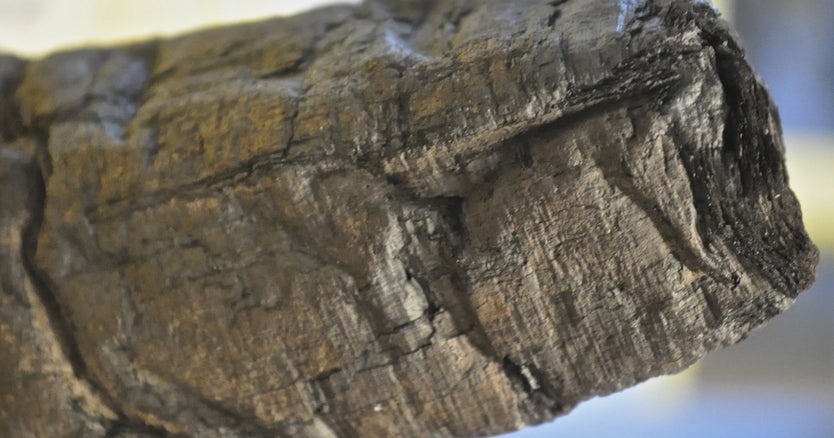
Herculaneum scrolls breakthrough: Scientists digitally "unroll" 2,000-year-old scroll scorched by Mount Vesuvius
CBSN
London — The Herculaneum scrolls have remained one of the many tantalizing mysteries of the ancient world for almost 2,000 years. Burnt to a crisp by lava from Mount Vesuvius in A.D. 79, the reams of rolled-up papyrus were discovered in a mansion in Herculaneum — an ancient Roman town near Pompeii — in the mid-18th century. Both towns were decimated by the Vesuvius eruption, and most of the scrolls were so badly charred they were impossible to open.
Over the next two and a half centuries, attempts were made to unfurl some of the hundreds of scrolls using everything from rose water and mercury to vegetable gas and papyrus juice, according to the New Yorker.
The few that could be opened were philosophical texts written in ancient Greek. But most of the scrolls were so badly damaged, they were considered illegible. More recently, researchers managed to decipher some select words using artificial intelligence, X-ray and CT scans to distinguish ink from the papyrus it was printed on.

Hamas said on Friday it has accepted a proposal from mediators to release one living American-Israeli hostage and the bodies of four dual-nationals who had died in captivity. Israeli Prime Minister Benjamin Netanyahu's office cast doubt on the offer, accusing the U.S. and Israeli-designated terrorist group of trying to manipulate talks underway in Qatar on the next stage of the Israel-Hamas ceasefire.

One of China's biggest restaurant chains has promised to refund thousands of customers after video of a customer urinating into a simmering hotpot went viral online, triggering a public outcry. The clip, recorded last month, appears to show a young man standing on a table at a branch of the Haidilao restaurant chain in Shanghai urinating into a vat of boiling broth.

In August 2021, Tamim Satari raced to the Kabul International Airport to evacuate Afghanistan after working with the American military as an intelligence officer, helping U.S. forces coordinate aerial bomb campaigns against the Taliban. But in the chaos of the U.S. withdrawal, his wife and newborn son were left behind.

It's a confusing time for American diplomacy. After yesterday's meeting in Saudi Arabia, the U.S. appeared on Tuesday to be back in Ukraine's corner — and calling on Russia to agree to a 30-day ceasefire in the war it started more than three years ago. It remained entirely unclear on Wednesday, however, whether Vladimir Putin might agree to a temporary ceasefire. His forces currently have the momentum on the battlefield but, like Ukraine, Russia is thought to have suffered hundreds of thousands of military casualties.









